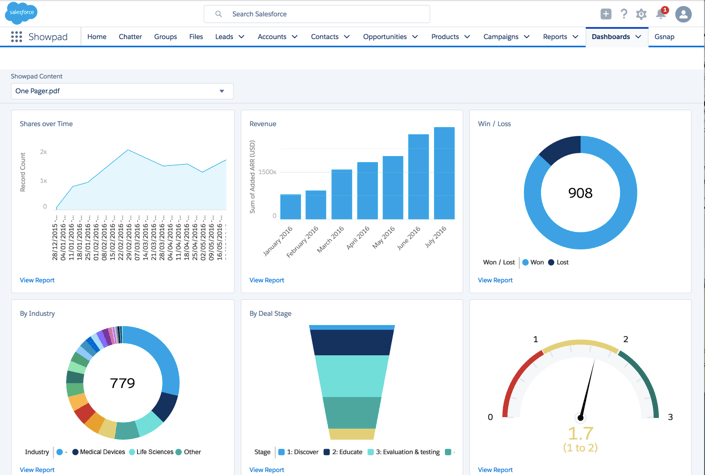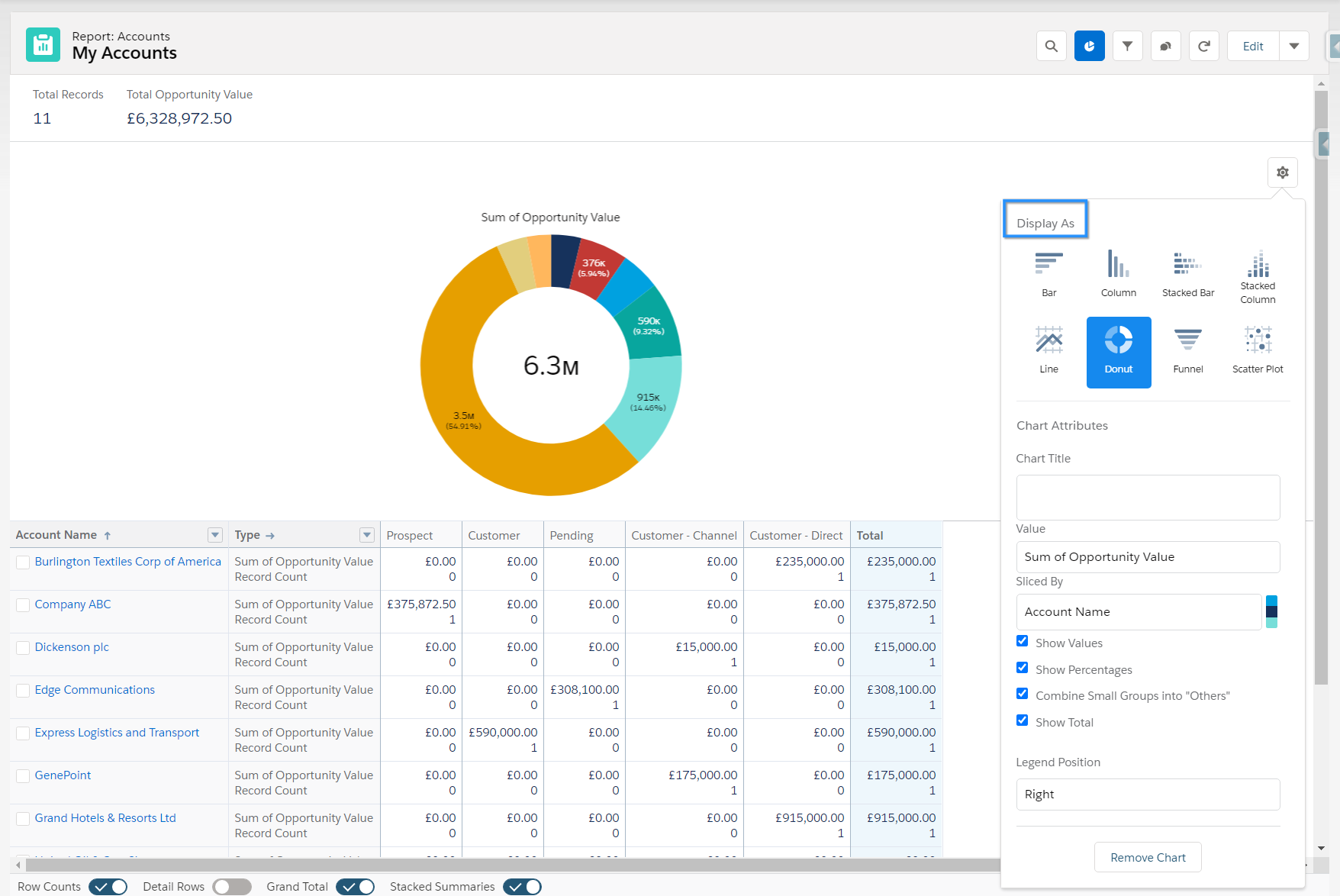Crafting a Comprehensive Salesforce Analyst Report: Key Insights and Strategies
The world of business hinges on data-driven decisions, and Salesforce Analyst Reports play a pivotal role in providing valuable insights for organizations. From unraveling complex market trends to guiding strategic business moves, these reports offer a treasure trove of information waiting to be explored.
Dive into the realm of Salesforce Analyst Reports as we uncover the significance and impact of this crucial tool in today's competitive landscape.
As we delve deeper, we will explore the components, methodologies, and benefits associated with Salesforce Analyst Reports, shedding light on how businesses can leverage these reports to drive success and growth.
Introduction to Salesforce Analyst Report
A Salesforce Analyst Report is a detailed analysis and evaluation of Salesforce, a popular customer relationship management (CRM) software used by businesses to manage their interactions with customers and potential customers.
These reports are crucial in the business world as they provide valuable insights into the performance, market position, and potential growth of Salesforce. Companies use these reports to make informed decisions about implementing Salesforce in their operations or optimizing their existing Salesforce usage.
Importance of Salesforce Analyst Reports
- Help businesses understand the latest trends and developments in Salesforce technology.
- Provide data-driven insights to improve Salesforce implementation and usage.
- Assist companies in benchmarking their Salesforce performance against industry standards.
- Enable organizations to stay competitive by leveraging Salesforce capabilities effectively.
Companies Benefiting from Salesforce Analyst Reports
- Salesforce itself utilizes analyst reports to enhance its product offerings and stay ahead of the competition.
- Large enterprises like Coca-Cola, Toyota, and T-Mobile use Salesforce Analyst Reports to optimize their CRM strategies and drive sales growth.
- Startups and small businesses rely on these reports to make informed decisions about investing in Salesforce solutions that align with their goals and budget.
Components of a Salesforce Analyst Report
When analyzing Salesforce, there are several key components that are typically included in an analyst report. These components provide valuable insights to businesses looking to leverage Salesforce effectively.
Market Share Analysis
Market share analysis is a crucial component of a Salesforce analyst report as it provides businesses with an understanding of Salesforce's position in the market compared to its competitors. This data helps businesses assess Salesforce's competitive strength and market dominance.
- Market share percentage of Salesforce compared to competitors.
- Trends in market share over time.
- Implications of market share on Salesforce's competitive strategy.
Financial Performance Metrics
Financial performance metrics in a Salesforce analyst report offer insights into the company's revenue, profitability, and growth. Businesses can use this information to evaluate Salesforce's financial health and potential for investment.
- Revenue growth rate.
- Profit margins.
- Key financial ratios like P/E ratio and ROE.
Customer Satisfaction Ratings
Customer satisfaction ratings provide businesses with an understanding of how satisfied Salesforce customers are with the platform and services. This data is crucial for businesses considering adopting Salesforce for their CRM needs.
- Net Promoter Score (NPS) of Salesforce.
- Customer feedback and reviews.
- Impact of customer satisfaction on Salesforce's market position.
Methodology for Conducting a Salesforce Analyst Report

When conducting a Salesforce Analyst report, it is crucial to follow a structured methodology to ensure accurate and insightful findings. This involves a series of steps and methods to collect and analyze data effectively.
Data Collection Methods
- Interviews with key stakeholders: Conducting interviews with individuals within the organization who interact with Salesforce on a regular basis can provide valuable insights into its performance and usage.
- Surveys and questionnaires: Distributing surveys or questionnaires to Salesforce users can help gather quantitative data on satisfaction levels, challenges faced, and areas for improvement.
- Data analysis: Utilizing data analytics tools to analyze Salesforce usage data, performance metrics, and trends can offer valuable insights into the platform's effectiveness.
Tools and Technologies
- Salesforce Analytics Cloud: Leveraging Salesforce's own analytics platform can provide in-depth insights into CRM data and performance.
- Business Intelligence Tools: Using tools like Tableau, Power BI, or Google Data Studio can help in visualizing and analyzing Salesforce data effectively.
- Data Integration Tools: Employing tools like MuleSoft or Informatica can assist in integrating data from various sources into Salesforce for comprehensive analysis.
Role of a Salesforce Analyst
A Salesforce Analyst plays a crucial role in analyzing and interpreting data related to Salesforce implementations and operations. They are responsible for gathering, organizing, and analyzing data to provide insights that help businesses make informed decisions regarding their Salesforce strategies.
Responsibilities and Duties
- Conducting data analysis to identify trends, patterns, and opportunities for improvement within Salesforce platforms.
- Collaborating with stakeholders to understand their requirements and translate them into actionable insights.
- Developing and maintaining reports, dashboards, and data visualizations to communicate findings effectively.
- Monitoring Salesforce performance metrics and making recommendations for optimization.
- Providing recommendations for process improvements and system enhancements based on data analysis.
Contribution to Analyst Reports
- Contributing valuable insights and data analysis to Salesforce Analyst Reports to help businesses understand the effectiveness of their Salesforce strategies.
- Assisting in the creation of comprehensive reports that highlight key performance indicators, trends, and areas for improvement within Salesforce implementations.
- Collaborating with other team members to ensure that Analyst Reports are accurate, informative, and actionable.
Skills and Qualifications
- Proficiency in Salesforce CRM platforms and related tools for data analysis and reporting.
- Strong analytical skills and the ability to interpret complex data sets.
- Excellent communication skills to effectively convey insights and recommendations to stakeholders.
- Attention to detail and the ability to work independently as well as part of a team.
- A background in business analysis, data science, or a related field is often preferred.
Benefits of Salesforce Analyst Reports
Utilizing Salesforce Analyst Reports can provide numerous advantages for companies looking to make informed decisions and improve their strategies.
Enhanced Decision-making Process
- By leveraging Salesforce Analyst Reports, companies can access valuable insights and data-driven recommendations to make informed decisions.
- These reports can help businesses identify market trends, customer preferences, and competitive landscapes, enabling them to adjust their strategies accordingly.
Improved Sales and Marketing Strategies
- Salesforce Analyst Reports can offer valuable recommendations on how to optimize sales and marketing efforts, leading to increased revenue and improved customer acquisition.
- Companies can leverage these reports to identify new opportunities, target the right audience, and refine their messaging for better engagement.
Enhanced Customer Service
- By analyzing customer feedback and data provided in Salesforce Analyst Reports, companies can enhance their customer service strategies and improve overall customer satisfaction.
- These reports can help businesses identify pain points, enhance communication channels, and personalize the customer experience for better retention.
Successful Outcomes from Implementation
- Many companies have seen significant improvements in their key performance indicators (KPIs) after implementing recommendations from Salesforce Analyst Reports.
- For example, a retail company increased its sales by 20% after implementing targeted marketing strategies recommended in the report.
Outcome Summary

In conclusion, Salesforce Analyst Reports serve as a compass in the vast sea of business decisions, helping companies navigate challenges and seize opportunities with confidence. By harnessing the power of data and analysis, organizations can steer towards prosperity and innovation, armed with the insights gleaned from these comprehensive reports.
Common Queries
What is the main purpose of a Salesforce Analyst Report?
The primary goal of a Salesforce Analyst Report is to provide in-depth analysis and insights on various aspects of a company's performance, market trends, and business strategies.
How can businesses benefit from utilizing Salesforce Analyst Reports?
By leveraging Salesforce Analyst Reports, businesses can make informed decisions, optimize their sales and marketing strategies, enhance customer service, and gain a competitive edge in the market.
What are the key skills required to excel as a Salesforce Analyst?
To excel in the role of a Salesforce Analyst, individuals need strong analytical skills, proficiency in data interpretation, knowledge of CRM systems like Salesforce, and the ability to translate data into actionable insights for business growth.